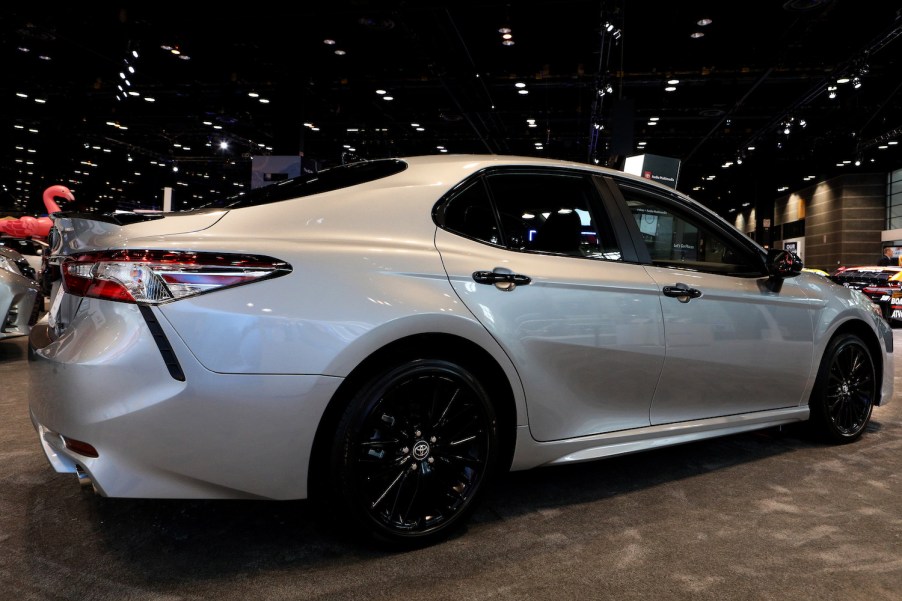
2022 Toyota Camry: How Do Drivers Feel About its Safety?
The Toyota Camry has proven itself as a borderline sports car, capable of producing an exciting and dynamic ride with efficiency. Owners praised the Camry for providing a smooth ride with comfortable suspension and plenty of interior space. The other half of the puzzle remains, do owners feel safe enough driving their spacious econobox? For a car with a $25,000 MSRP, does it offer enough to inspire confidence, and is it reliable enough to stake the brand’s reputation? Here’s what owners had to say.
What safety features does the Toyota Camry offer?

As you’d expect, Toyota sells the Camry with a comprehensive set of safety features, depending on the trim. There are 13 different Camry models to choose from, and while some pairs have the same safety features, others differ in small ways. For instance, both the Camry LE Hybrid and the SE come with Toyota Safety Sense 2.5, which are nearly identical.
However, the LE Hybrid’s Safety Sense suite comes with full speed range dynamic radar cruise control. The LE has Dynamic Radar Cruise Control, without the full speed. Be sure to read the fine print. Blind spot monitor with rear cross-traffic alert is optional on the LE, SE, and LE Hybrid models, as is the integrated backup camera. Some models have these features as standard.
Do Toyota Camry drivers feel safe?

Drivers should feel safe driving the Camry. It scored green across the board according to IIHS, in all crash tests and crash avoidance. Looking at the numbers, however, tells a different story. Camry owners between 2017-2019 are 37-percent more likely to file a personal injury claim from a collision, according to the IIHS. However, Camry Hybrid owners are only 3-percent likely to file a claim. On the flip side, Camry owners are only 12-percent likely to file a collision claim, which could mean the preventative safety equipment is doing its job.
Is the Toyota Camry still reliable?

Since its 2018 redesign, the Camry has undergone a few recalls. The fuel pump can fail, as can the brake assist vacuum pump. Perhaps more alarmingly, some 1,700 Camrys got incorrectly-sized pistons. These are all recalls, which means Toyota should fix them for free. Given Toyota’s propensity to resist acknowledging its cars’ weaknesses, this is significant.
True to Toyota fashion, its automatic transmission has a few issues. Owners complain of rough transmission activity when shifting into gears. Toyota has a history of making transmissions that don’t shift properly, and has yet to acknowledge it. It’s just something to keep in mind before buying a Toyota. Perhaps these issues have been fixed with the 2022 model, but it might be too early to tell.
Is the Toyota Camry safe enough for its drivers?

The Camry seems to do well at avoiding accidents as evidenced by IIHS numbers. However when it does crash, the safety ratings don’t line up with the frequency of personal injury claims. Iffy transmission problems, if left to run rampant, could become a factor in causing more accidents as well. If your Camry has made it past 2,900 miles without shifting problems, it’s likely to stay the course and not cause problems. When it comes to safety and reliability, it might be best to use caution when considering a Toyota Camry.


